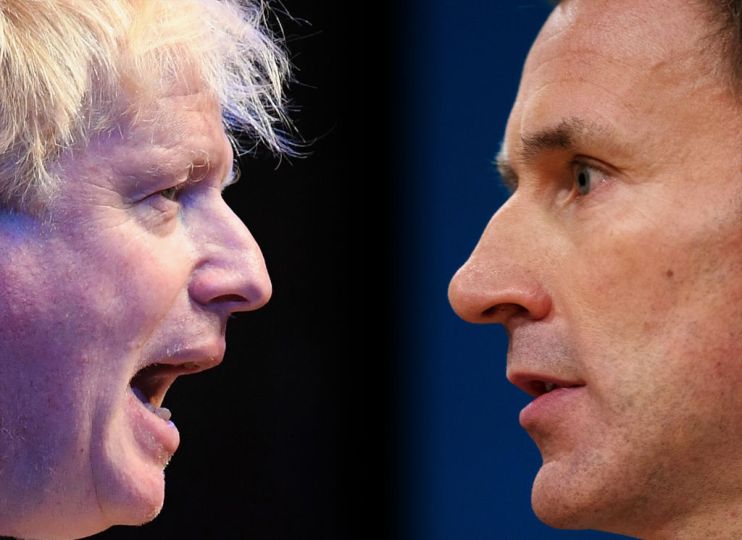Tories draw up new Brexit battle lines

The Conservative party’s final two contenders for prime minister bulked up their plans for a showdown with Brussels over the weekend, while the frontrunner – Boris Johnson – also sought to talk up his pro-business credentials.
Confronted about an incident last year in which Johnson said “f*** business” during a Brexit debate, the former London mayor insisted yesterday that he is an “evangelist for UK business” and has “stuck up for business through thick and thin”.
“I can’t think of anybody in my party or any party that has stuck up for financial services in London during some very difficult times, and indeed I can’t think of anybody who has gone around the world championing UK businesses,” he told Sky.
Johnson also warned of “political extinction” if the UK fails to leave the EU by 31 October and yet again refused to rule out proroguing parliament.
The former foreign secretary has assembled a hardline Brexit strategy team including Jacob Rees-Mogg, current Brexit secretary Stephen Barclay and attorney general Geoffrey Cox, according to reports over the weekend.
Johnson’s rival for Number 10 Downing Street, Jeremy Hunt, has toughened his own position by recruiting a series of trade experts and telling the Sunday Times that he will “not hand over a penny more than is legally required” if the UK crashes out of the bloc without a deal. Former Canadian PM Stephen Harper forms part of Hunt’s heavyweight negotiating team.
Hunt is due to give a speech today in which he will pledge to ramp up no-deal preparations, as he tries to win over Brexit-backing Conservative party members.
Some polls show Hunt leading Johnson among UK voters. However, Johnson has the lead among party members.
Meanwhile yesterday, Johnson also talked up the fiscal headroom available to an incoming Prime Minister, insisting that “there is cash available” to finance his ambitious spending plans and saying he is prepared to see borrowing increase “to finance certain great objectives”.
“If it’s borrowing to finance great infrastructure projects and there is an opportunity to borrow at low rates and do things for the long term benefit of the country then we should do them,” he said.
A spokesperson for the Institute of Directors said “many business leaders are eager to see better transport and digital infrastructure,” but cautioned: “extra spending should still come as part of a prudent plan for the public finances”.
Johnson has long been a fan of ambitious infrastructure projects. He oversaw the failed London Garden Bridge project during his tenure as Mayor of London, which cost £53.5m. As Mayor, he also supported plans for an airport to be built on an artificial island in the Thames estuary – dubbed “Boris island”. The plan was rejected by the airports commission in 2014.
He has since proposed building a bridge linking mainland Britain with the island of Ireland, as well as floating the idea of a bridge across the channel to strengthen links with France post-Brexit.
Outgoing chancellor Philip Hammond has urged Tory leadership contenders exercise fiscal caution.
Hammond wrote to candidates earlier this month asking them to maintain the current deficit limit of two per cent of GDP “at least through 2021-22”.
“The Conservative party has a hard-won reputation for fiscal and economic competence,” Hammond wrote. “[I]t is vital that we do not throw that away”.